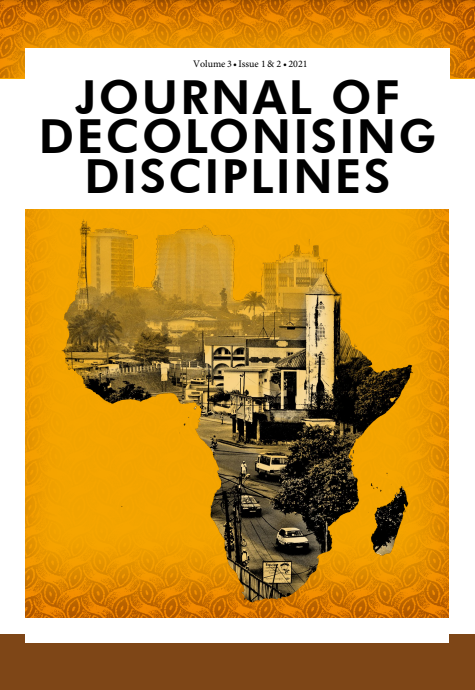Borders recolonised – the impacts of the EU externalisation policy in Africa
DOI:
https://doi.org/10.35293/jdd.v3i1.3718Keywords:
externalisation, camp, borders, refugees, decoloniality, state of exceptionAbstract
This article examines the impacts of the European Union’s (EU) border externalisation policy and how it has contributed to prolonged refugee encampment in Africa. The EU signed interdiction and readmission agreements with a few African countries whereby refugees and asylum seekers en route to Europe are forcefully captured and refouled to Africa. The EU-Africa cooperation is often framed in humanitarian language as ‘development cooperation’, which characterises a neo-colonial engagement with Africa. There is a plethora of literature on the EU externalisation policy but largely written from a Eurocentric perspective as they glorify refugees and asylum seekers’ refoulement to Africa. Sadly, the majority of those refouled in the past two decades come from war-torn countries such as Somalia and Sudan where they faced torture and the death penalty.
I advance an Afrocentric perspective to critique the EU externalisation policy which is largely focused on keeping African refugees in their region of origin. I deploy numerous theoretical frameworks, including Third World Approaches to International Law (TWAIL) scholarship, Anibal Quijano’s coloniality theory, Frantz Fanon’s decoloniality theory, Achille Mbembe’s postcolonial theory and Giorgio Agamben’s theory of the state of exception to critique that the outsourcing of the EU’s immigration control to some of the poorest nations in the world is understood in the context of colonial relations to Africa.


